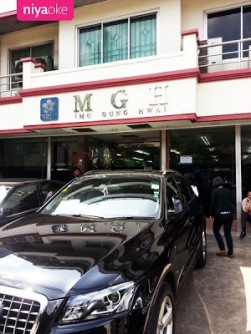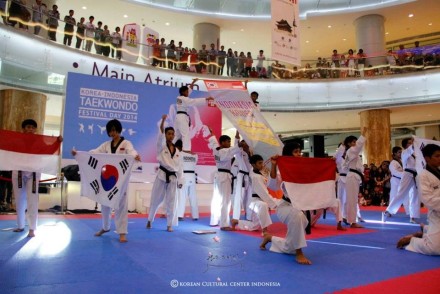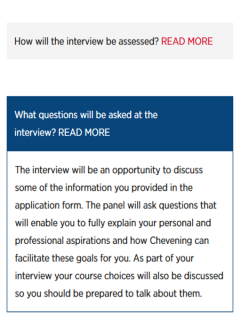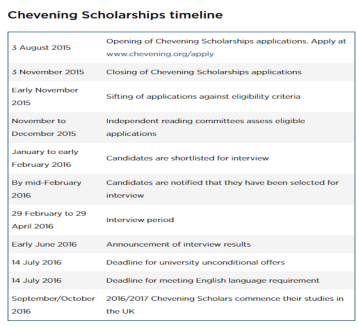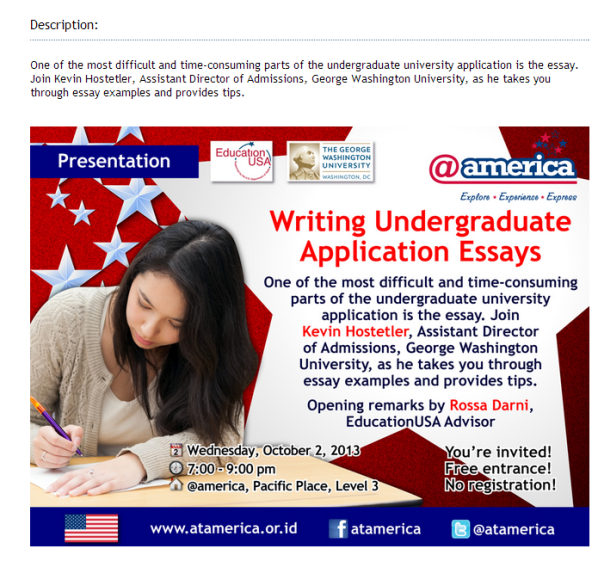@America Presents: Out of Indo … and Back: Tales of the Diaspora July 21, 2017
Posted by Sharehouse Jakarta in Uncategorized.add a comment
This talk is sponsored by @America, the U.S. Embassy’s American cultural center at Pacific Place Mall in South Jakarta.
The event takes place Thursday 3 August from 1:30 – 3:30 p.m. Don’t miss it!
How to Cope with Disruption and Distraction as an International Student May 26, 2017
Posted by Sharehouse Jakarta in Uncategorized.Tags: faith, hope, human rights Indonesia, international student services, multiculturalism, religious freedom, student visa, suicide, terrorism, tolerance
add a comment
I was chatting with an Indonesian woman studying in the UK on scholarship about the bomb in Manchester this week that killed 22. We were asking how international students cope with events that disrupt their academic focus.
“A lot of us keep our official scholarship papers and even our statement of purpose right by our laptop, to remind us why we’re here, said Michelle (not her real name).
“I’m speaking about myself and the other Indonesian students on scholarship.”
“And nature,” said Michelle. “That’s why I chose this university. That’s why you see so many pictures of me hiking on Facebook.”

The Korean Who Fought for Indonesian Independence March 24, 2017
Posted by Sharehouse Jakarta in Uncategorized.Tags: Indonesian-Korean, 적도에 묻히다, Korean Indonesian, Yang Chil-Seong, 内海愛子, 村井吉敬
2 comments
Have you heard the story of Yang Chil Sung (양 칠성), the Korean anti-colonialist who didn’t stop fighting when World War II was over? His nom de guerre was Komarudin.
Born in 1919 in Wanju County, North Jeolla Province, he was conscripted by the JIA while young. Korea and the Dutch East Indies (now Indonesia) were both under Japanese occupation. And life was brutal.
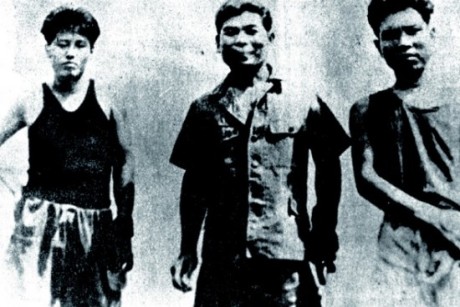
By age 23, Yang found himself in West Java, guarding Allied prisoners of war. But he was almost as badly off as the Australian and Dutch men he was guarding.
When the war ended in 1945, he joined local Indonesian freedom fighters in the mountains near Garut, West Java. They began preparing for the Dutch attempt to retake their former colonies.
After participating in several significant guerrilla operations, Yang was captured and executed by the Dutch in 1949. If the reports are true, he died at peace with himself and the decisions he had made, requesting red and white clothing for the execution, and a Muslim burial.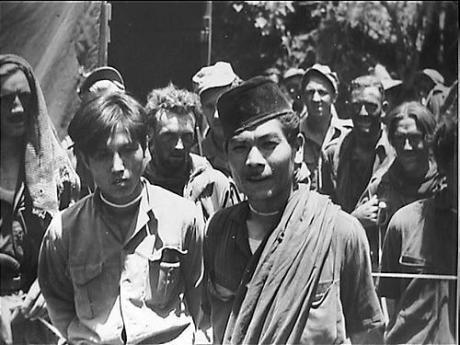
I believe he was married to an Indonesian woman. And he must have spoken Javanese and Indonesian, in addition to Japanese (and Korean). In fact, most people thought he was Japanese, as his identify as a citizen of Japan-occupied Korea would have been totally subsumed under his identity as a Japanese soldier.
Around 1400 Koreans were taken from Busan to Bandung in 1942 to work as guards. Few returned. In 1975, Yang’s remains were relocated to Indonesia’s most prominent war veteran’s cemetery (Taman Makam Pahlawan Kalibata) in Kalibata, South Jakarta.
South Korea marks independence day on 15 August while for Indonesia it’s 17 August. That’s history, not coincidence.
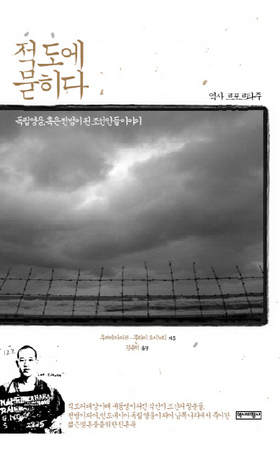
Koreans in Indonesia: Based on a True Story March 24, 2017
Posted by Sharehouse Jakarta in Uncategorized.add a comment
For over 500 years between the early 1400’s and the mid 1900’s, Indonesia and Korea fell out of contact.
See, in 1406 the Majapahit Empire sent an envoy to the brand-new Kingdom of Chosŏn. But it got attached by pirates near Gunsan, in Chŏlla Province. It was loaded with ostriches, peacocks, parrots, pepper, medicine, sandalwood and textiles – and there were 120 men and women on board.
About 40 of them made it shore, but the pirates had taken all their clothes. 
Immediately, King T’aejong placed an order for food, clothing and a smaller, faster ship to get them back to Java — true story.
“Terima kasih,” said ambassador Chen Yanxiang, promising to return the next year. Perhaps he got busy — we don’t know — but the gifts he sent as a token of gratitude for the prior hospitality did eventually arrive.
So it’s 2017; there are 35,000 South Koreans in Jakarta; and Korean food, clothing, and small-but-fast transportation is once again very popular in Java. What just happened?
Mostly war. And pirates. But another big milestone was when the Jakarta International Korean School opened its doors in East Jakarta in 1975. Today it’s a very large school.
Then, in 1982, Kim Woo-jae began selling kimchi and doenjang (about 10 minutes from where I live) in Kebayoran Baru. With a reliable supply of kimchi, imagine the progress made.
And the rest is history: The “Miracle on the Han River,” in the 1980s, was no joke: Korea stopped being a poor nation and starting being a rich one almost overnight. In the early 90’s, Jeewon and LG came to Indonesia, followed by Samsung and many others. Some of the relevant sectors are electronics, manufacturing, automotive, steel and petrochemicals.
So today South Korea is the third largest foreign investor in Indonesia; Korean firms employ over 900,000 Indonesians; and “Lotte” is basically Indonesian for grocery store.
Of course, both Indonesia and Korea took a hit during the Asian financial crisis. I visited Korea twice that year and noticed not everyone on the train was whistling. Obviously things could have been better.
Mr. Kim’s Mu Gung Hwa grocery is now a”Koreatown” landmark, but Koreans live all over Jakarta (Cibubur, Kelapa Gading) and Greater Jakarta (Cikarang and Lippo Karawaci). Also, you don’t need to go anywhere to experience Korean culture, since Korean media and creative products will come to you. Indonesians know all about it, because the K-wave hit Asia before it reached the West.
Meanwhile, Koreans don’t hesitate to learn Indonesian, enroll in Indonesian universities, start families or businesses in Indonesia, or become Indonesian citizens. That’s unique, if you stop to think about it.
If you check Twitter to see who’s practicing their Indonesian — usually Koreans. If you go to the University of Indonesia, you’ll see Korean students. If the hotel lobby is full of ecstatic teens and young adults, something Korean is going on.
There must be a fit.
SOURCE: Koreans in Indonesia
Get outta here. Go! March 19, 2017
Posted by Sharehouse Jakarta in Uncategorized.add a comment
 Going overseas to study isn’t just one thing. It’s a lot of things: A strategy, a statement, an investment, a leap of faith.
Going overseas to study isn’t just one thing. It’s a lot of things: A strategy, a statement, an investment, a leap of faith.
I get it. I love it. And I live it.
And that’s what this blog is about: Getting out of Indonesia. I want to hear your story, too; but here’s mine.
I left the United States for the first time when I was in 6th grade. I went to Mexico to shoot a film with my dad. Our luggage got impounded by the officials at the Mexico City airport. We almost lost all the cameras. And so we got on a plane and headed back to the U.S. And I loved it.
The second time, we rented a huge motorhome, hid all the cameras deep inside, and filled the vehicle with children, mothers, uncles, grandmas – one big crazy family vacation. Actually, not. It was business and pleasure that time. We drove down to Mexico City and shot the film. And then we went to relax at my aunt’s house in Cuernavaca. I missed a month of junior high; and it was glorious.
The third time I went overseas I stayed for almost two years. I was a missionary. This was a huge experience. Massive. That’s why I speak Spanish. That’s why I study migration. That’s what I wrote about in my personal statement for Berkeley (Go Bears!).
And that’s why I’m living in Indonesia – and why my daughter is Indonesian.
I love to see the sun set behind the Mt. Pangrango and Mt Gede, the two volcanoes nearest Jakarta. I love to be awakened by a chorus of birds and look out to see the Bali Strait. I love to roll through the slums of South Jakarta on my motor scooter, where flooding forces all the families to evacuate and sleep in a communal shelter 5-10 times a year during rainy season.
And I love to hear Indonesians say that they’re headed to my country, or your country — or anywhere – to learn new things and have new experiences.
There is no downside, my friends. Just go.
What should I say in my Chevening interview? March 29, 2016
Posted by Sharehouse Jakarta in Big Picture, Uncategorized.Tags: beasiswa chevening, chevening beasiswa, chevening Indonesia, chevening interview, study abroad chevening, UK scholarship Indonesia
add a comment
What should I say in my Chevening Programme interview? Sometimes people ask me this question.
Here’s what I say: Tell your story. The Chevening Programme isn’t hiring you. They don’t need you to do anything in particular for them. They’re happy to let you define success your own way. So please don’t wonder about the “right responses” for Chevening essays or interviews. It’s not like that.
The official advice for the interview from the Chevening FAQ page is here:
So what about this story. Let’s start with the middle, which is where you are today. You’re in a very cold room waiting for your Chevening interview. You’re relaxed and even smiling. You’ll be chatting with Indonesians and British people about subjects you love – UK and Indonesia. When they ask a question, listen carefully and think where you want to begin. Because there are several ways to tell the same story. Remember, you’re a decent communicator, or else you probably wouldn’t have gotten this far.
Anyway, the middle of the story is set in the present tense. It’s about your current preparations for overseas study and how you fit in to a particular degree program at a particular university in England. Not all international students enjoy international study. With budgets more limited than in the past, Chevening can’t take any risks. They’re shopping hard for good candidates. And you need to shop hard, too — for the field, university and degree program. Research up and know before you go.
Of course, the point isn’t to impress Chevening with your internet research skills. The point of the entire interview – as much as anything else – is to connect with the interviewers and put their minds at ease: Here’s a sharp, likeable person, they’ll say. Let’s give her money to her.
So how does the story actually begin? Please check your CV and the essays you submitted to Chevening for the answer to that. Since the beginning of the story is how your background and track record qualify you for this opportunity. Needless to say, your response in the interview should mirror your written application.
Your family background, gender, ethnicity, religion and your choice of high school, university and work career are an important part of your story. To some degree, all Chevening candidates will be blowing in the wind until June when they hear about the results of the interview and whether your intended career approach is still a thing. Just skip that part. Don’t talk about how you’re blowing in the wind. Focus instead on how you fit in to Indonesia society – the groups you identify with, the roles you play, the developments you follow, the people you look up to, the support you enjoy, the service you give to others. It’s about “where you’re coming from.” Because Chevening knows that, after study overseas, you’ll be returning to more or less that same spot.
Remember, it’s nice to demonstrate your connection to the UK in your interview. But it’s crucial to demonstrate your connections in Indonesia.
The “end” of the story– as you know – is about how you will come back to Indonesia, after postgraduate study in the UK, and be a successful and influential example of how international educational exchange really does matter. But no need to focus too much on how the story ends – and here’s one reason why: No one actually knows! Thus, the point isn’t to prove that you will be fabulous, just that you can be fabulous – and want to be.
The Chevening people have invited you to “fully explain” so they’ll be listening hard to you talk about your background (beginning), your current preparations to study in UK (middle) and your aspirations for the future (end). And they’ll be asking themselves if it feels like a true story ..because no one knows for sure.
But if you do get the money, it’s likely because the people at the Chevening Programme concluded:
The candidate was friendly, smart and well-connected. She started way back at point A (your background) and made it all the way here to point B (where you are now). And we understand her objective — about how she’d now like to go on to point C (aspirations) – which is obviously an ambitious, interesting and worthwhile thing to do. So we gave her the money because we wanted to be involved. We wanted to be part of the story. We think we understand what she wants to do. We think she can do it. And we think we can help her.
Now, if someone is telling you a funny story but you don’t quite get the humor, you’ll probably invest a little extra effort because everyone likes to laugh: “Wait, so the rabbit fell asleep in the middle of the race?”
You can expect the same with the panel of Chevening representatives who will interview you. They may discover that your essays and your answers aren’t 100% in alignment and decide to invest a little effort into trying to understand – because you confused them.
Real life is full of real inconsistency. What should you do? Just retell the story. For example, try starting at the beginning. Remind the panel when you first became interested in study abroad. Help them grasp how your past accomplishments have positioned you to take advantage of future opportunities. In other words, even if the question you’re asked is about the details, the response is still about the background and the picture.
Good luck!
Belajar GMAT / GRE adalah sport September 5, 2014
Posted by Sharehouse Jakarta in Uncategorized.add a comment
Frequently asked question (FAQ): Do you know anything about test prep?
Yes, I know it’s a bit game.
I’m not really a golfer or a gamer, so I’ll use a running analogy. The first time you run a half marathon … it will hurt. But if you keep running half marathons it eventually will not hurt.
Question is, will you keep running half marathons? And how are you going to run them –sporadically and barely –with great difficulty and occasional injury? Because that won’t work. You have to run them regularly, methodically and with some care.
So what about the 100 m dash? Now, if you’re already good at marathons, then nothing. In other words, your half marathon and marathon practice don’t help because 100 m is different.
So that’s basically what the GMAT and GRE are like — if you ask me. Like a bunch of sporting events you need to train for. You don’t actually have to win. You just need to be competitive.
But actually, all the different question types (“events” ) on the test do have a lot in common. Such as the fact the correct answer is basically hidden among incorrect answers.
Kind of like a game.
Game day
And then there’s “game day,” i.e., the competition. When you actually take the test. So the point is to work backwards, using all the remaining time before game day, without burning out.
If you’re reading this discussion (please feel free to leave comments) and you still have a few years before you’re going to go to graduate school, congratulations — you’re ahead of the game.
But what I’m saying is these are two of the biggest test prep pitfalls: 1) you don’t have enough time to prepare 2) you somehow got burned out before game day.
Remember, your training regime has to at least bearable, perhaps even fun.
If you are a computer game player, please keep playing this game. Obviously the score will go up. If you’re a golfer, this game is for you: it’s entirely in your head. Each time you’re out there hitting the ball — in other words, doing practice questions — and getting ready for your tournament, you’re asking yourself: What just happened? Why did I do that?
Was I over-thinking it? Under-thinking?
Too wide? Too narrow?
And … GOL!
So GRE/GMAT isn’t really about what you know. Just how well you play.
Have fun!
EVENT | Writing undergraduate applications essays: @America, Oct 2, 2013 October 1, 2013
Posted by Sharehouse Jakarta in Uncategorized.add a comment
I wrote my application essays for UC Berkeley based on the recommendations of an admissions dean at UC Berkeley — and it worked! So if you’re applying to George Washington University, don’t miss this event.
My story is, it was a pretty autumn day and instead of going biking in Tilden Park I went to the “how to write an admissions essay” workshop sponsored by Boalt Hall. After all, I was already living in Berkeley and the the park wasn’t going anywhere.
I just honestly thought it would be a waste of time since I already knew how to write and had even published articles and monographs.
So I decided to do the boring thing. And I learned really a lot, applied everything, and got accepted, even though my test scores were slightly below median.
Now if I hadn’t gotten accepted would I be writing this “success story”? No. Good point. But I know it helped me write a better essay because I still remember some of the points made by Edward Tom, who is still dean of admissions at Boalt.
Antibiotics, test prep and drug & alcohol rehab in Bali – all good things in course April 8, 2013
Posted by Sharehouse Jakarta in Big Picture.Tags: 12 step, Bali rehab, Indonesa behavioral therapy, Indonesia academic counseling, Indonesia addiction, Indonesia ADHD, Indonesia behavioural therapy, Indonesia drug and alcohol, Indonesia drug dependency, Indonesia harm reduction, Indonesia rehabilitation, Indonesia special needs, Indonesia substance abuse, seasons bali rehab, twelve step, YBS Bali
add a comment

Ever hoped a wise wizard would kidnap you and lock you up somewhere pleasant with good food until your thesis, final exams or other academic objectives were wrapped?
Well, I met some guys in Bali last month in essentially the same boat. Their goal is getting free from substance abuse. And guess what? There’s a course you can take for that — in Bali — and even some apps.
Why ‘Bahasa Indonesia’ should normally be translated as ‘Indonesian’ November 21, 2012
Posted by Sharehouse Jakarta in Uncategorized.Tags: indonesian translation, language of Indonesia
6 comments
Once upon a time there was a video of Barack Obama speaking Indonesian at a press event. This was right after he became president, and before he had delivered any impressive speeches in “Bahasa,” here in Indonesia. So people were talking about how awesome his Indonesian was, after all those years.
And then Indonesia-linked journo-linguist Ben Zimmer posted the video on a University of Pennsylvania linguistics Penn LDC Language Log and tagged it up as #bilingualism #LanguageAndPolitics #multilingualism #pragmatics.
The original post included this note:
One pet peeve: the ABC News report refers to Obama’s proficiency in “Bahasa Indonesian.” The language is called Indonesian in English and Bahasa Indonesia in Indonesian. “Bahasa Indonesian” is a mix-up of the two terms. This confusion could be avoided by simply referring to the language, in English, as Indonesian, but the imprecise use of the term Bahasa on its own (which simply means “language”) by expats and journalists has apparently led to further misunderstanding about the name of the language.
After all, no one says “I had fun practicing my Français in Paris last week” — unless they’re playing. So is top 15 global language Bahasa Indonesia — Benedict Anderson’s “Revolutionary Malay” — somehow different? After all, until very recently, no one at all spoke Indonesian as a first language, and there was no such thing as Indonesian literature.
No. It’s not different. Thus, may safely conclude that the best reason for saying, “Last month I was in Jogjakarta practicing my Bahasa Indonesia” is that you didn’t get enough practice while you were there.
Just in case, I’ve thought up a few reasons why it makes perfect sense — to me — not to say Bahasa Indonesia when I’m speaking English.
Reasons why:
1) If we continue to translate Bahasa Indonesia into English as Bahasa Indonesia, then people will continue trying to shrink that down to “Bahasa.” And then we’re just one step away from absurdities like “Bahasa Indonesian.”
2) “Bahasa” isn’t a good abbreviation for Bahasa Indonesia in Indonesian or English. Odd conventions do arise over the water cooler or in the field — those situations when you’re speaking half this, half that, and all you really care about is not looking dumb or offending the other guy. But that doesn’t make “Bahasa” [language] the official language of Indonesia.
3) Indonesian is one word, not two. Bahasa Indonesia is twice as long but much more ambiguous. This matters, as computers aren’t real flexible thinkers and software localization teams don’t have a whole lot of time on their hands to ponder socio-lingustics and the role of national languages in the construction of the imagined community.
4) Indonesia is so chock full of mystery and wonder, there’s hardly any need to mystify the name of the national language.
In some contexts (e.g., law and science), “Indonesian” may actually be imprecise — whenever it’s unclear whether the reference is to the people, the place — or what. After all, this isn’t an ancient language that everyone has definitely-and-for-sure heard of (like Malay).
But, nope. Indonesian is a joy. It’s easy to speak (phonetic alphabet, no tones, little grammar misery); it’s easy to write (no characters); and it even has an easy name: Indonesian.
5) What’s wrong with the -ian suffix? We’ve got Russ-ian, Egypt-ian, Hungar-ian and tons of others … so why not Indones-ian?
6) While editing, I often find the lovely qualifier, Indonesian, very much neglected by my Indonesian editees (because of second language interference, or whatever you might call it). That is, they almost always opt for “Indonesia’s culture” and “Indonesia’s market” over “Indonesian culture” and “the Indonesian market.”
Admittedly, “Indonesia’s language” isn’t going to work as a way of bringing Bahasa Indonesia into English. But what’s wrong with this little conversion process here: Bahasa Indonesia >> the Indonesian language >> Indonesian.
7) No idea who is behind this Bahasa Indonesia ≠ Indonesian myth. Apparently it’s a cross-cultural conspiracy comprising native and non-native speakers of Indonesian.
One thing I do often hear Indonesian translators say is, “You can’t translate proper nouns like Universitas Indonesia or Bahasa Indonesia.” While this appears to be a non-rule, it must have a basis in something.
Still, native English speakers are arguably the ones most at fault for not being able to work out that, in English, the word for Bahasa Indonesia is Indonesian.
+++++++++++++++
NOTE: The approach above is supposedly a practical one — that may benefit translators, computer programmers and geography students (#pragmatics). But will be other approaches and other considerations (#LanguageAndPolitics).
The ideas of Benedict Anderson are surely on point here. The author of Imagined Communities coined the memorable term Revolutionary Malay to help explain how a non-language becomes one of the world’s most widely spoken languages in two generations.
Anderson knew Indonesian as well as anyone. He died last year, aged 80, on a lecture circuit in Indonesia .


